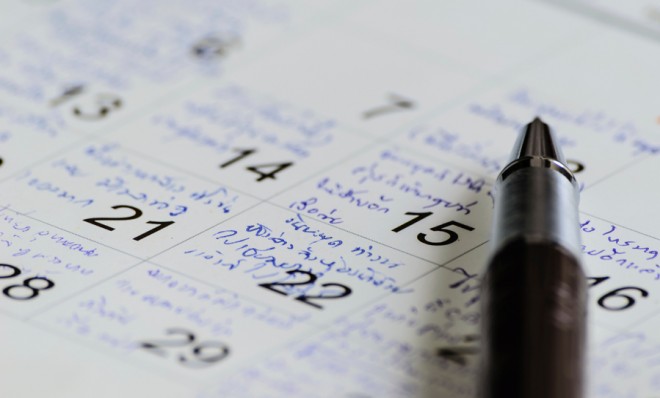How your organization can improve decision-making
It's important to understand when you're right for the wrong reasons and when you're wrong for the right reasons

A free daily email with the biggest news stories of the day – and the best features from TheWeek.com
You are now subscribed
Your newsletter sign-up was successful

When Michael Mauboussin met Nobel Laureate Daniel Kahneman, he asked how we can improve our performance.
Kahneman, the author of Thinking: Fast and Slow, replied, almost without hesitation, that you should go down to the local drugstore and buy a very cheap notebook and start keeping track of your decisions.
Thinking Matters
Whenever you're making a decision of consequence, take a moment to think. Write down the relevant variables that will govern the outcome, what you expect to happen, and why you expect it to happen. (Optionally, you can add how you feel about the decision and your confidence level in the outcome you expect.)
The Week
Escape your echo chamber. Get the facts behind the news, plus analysis from multiple perspectives.

Sign up for The Week's Free Newsletters
From our morning news briefing to a weekly Good News Newsletter, get the best of The Week delivered directly to your inbox.
From our morning news briefing to a weekly Good News Newsletter, get the best of The Week delivered directly to your inbox.
A journal of this nature will reduce hindsight bias and give you accurate and honest feedback.
It will also help you distinguish between when you're right for the wrong reasons and when you're wrong for the right reasons.
If you're anything like me, one thing that you'll discover is that, on the few occasions when you're right, it's often for the wrong reasons.
A Decision Journal
Somewhat surprisingly, few organizations keep track of what's decided and why.
A free daily email with the biggest news stories of the day – and the best features from TheWeek.com
This seems idiotic when you consider that often thousands of dollars are spent making a decision. Of the few that do keep track of decisions, fewer will be honest about what's actually discussed.
While accurate, for example, few people will write down that the highest paid person in the room, usually the boss, said to do X, and that's why you're doing it.
But that's kinda the point isn't it?
If you can't write down what was discussed, the relevant variables that govern the decision, and why you think something will play out, than you should seriously think about why you're making the decision in the first place. It could be that you don't understand what's going on at all. If that's the case, it's important to know.
I get that we have to make decisions under uncertainty. But we're not going to learn from those decisions if we don't keep track of, and review, what's decided and why.
While people come and go, organizations often seem to make the same mistakes over and over. Improving our ability to make decisions is simple, but not easy.
A decision journal will not only allow you to reduce your hindsight bias, but it will force to you make your rationale explicit upfront. This habit will often surface bad thinking that might have otherwise slipped by.
More from Farnam Street...
-
 One great cookbook: Joshua McFadden’s ‘Six Seasons of Pasta’
One great cookbook: Joshua McFadden’s ‘Six Seasons of Pasta’the week recommends The pasta you know and love. But ever so much better.
-
 Scientists are worried about amoebas
Scientists are worried about amoebasUnder the radar Small and very mighty
-
 Buddhist monks’ US walk for peace
Buddhist monks’ US walk for peaceUnder the Radar Crowds have turned out on the roads from California to Washington and ‘millions are finding hope in their journey’